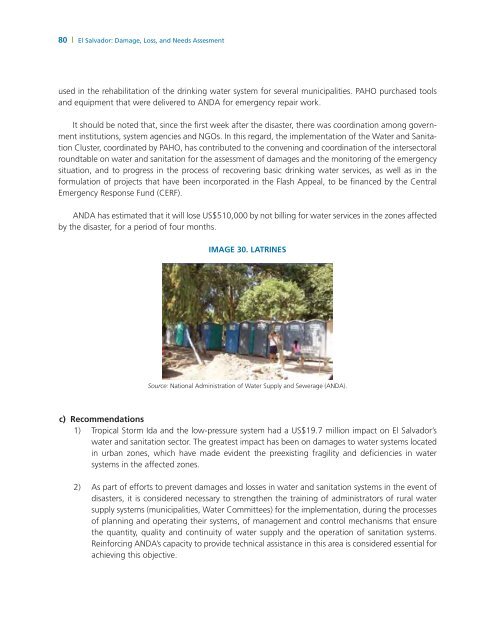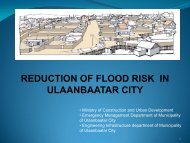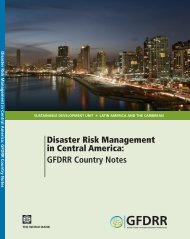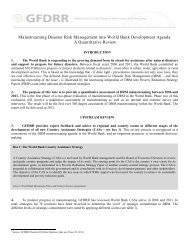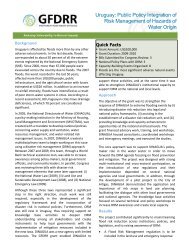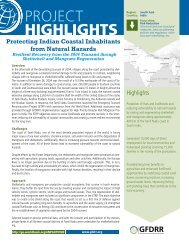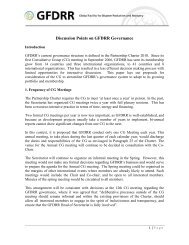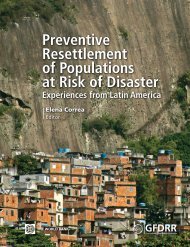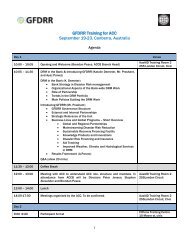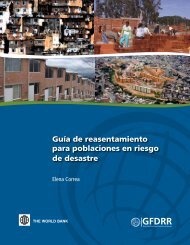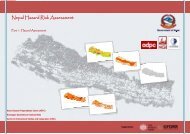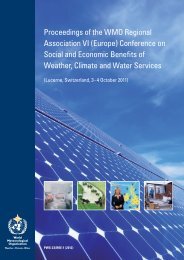El Salvador - GFDRR
El Salvador - GFDRR
El Salvador - GFDRR
You also want an ePaper? Increase the reach of your titles
YUMPU automatically turns print PDFs into web optimized ePapers that Google loves.
80 | <strong>El</strong> <strong>Salvador</strong>: Damage, Loss, and Needs Assesment<br />
used in the rehabilitation of the drinking water system for several municipalities. PAHO purchased tools<br />
and equipment that were delivered to ANDA for emergency repair work.<br />
It should be noted that, since the first week after the disaster, there was coordination among government<br />
institutions, system agencies and NGOs. In this regard, the implementation of the Water and Sanitation<br />
Cluster, coordinated by PAHO, has contributed to the convening and coordination of the intersectoral<br />
roundtable on water and sanitation for the assessment of damages and the monitoring of the emergency<br />
situation, and to progress in the process of recovering basic drinking water services, as well as in the<br />
formulation of projects that have been incorporated in the Flash Appeal, to be financed by the Central<br />
Emergency Response Fund (CERF).<br />
ANDA has estimated that it will lose US$510,000 by not billing for water services in the zones affected<br />
by the disaster, for a period of four months.<br />
IMAGE 30. LATRINES<br />
Source: National Administration of Water Supply and Sewerage (ANDA).<br />
c) Recommendations<br />
1) Tropical Storm Ida and the low-pressure system had a US$19.7 million impact on <strong>El</strong> <strong>Salvador</strong>’s<br />
water and sanitation sector. The greatest impact has been on damages to water systems located<br />
in urban zones, which have made evident the preexisting fragility and deficiencies in water<br />
systems in the affected zones.<br />
2) As part of efforts to prevent damages and losses in water and sanitation systems in the event of<br />
disasters, it is considered necessary to strengthen the training of administrators of rural water<br />
supply systems (municipalities, Water Committees) for the implementation, during the processes<br />
of planning and operating their systems, of management and control mechanisms that ensure<br />
the quantity, quality and continuity of water supply and the operation of sanitation systems.<br />
Reinforcing ANDA’s capacity to provide technical assistance in this area is considered essential for<br />
achieving this objective.


